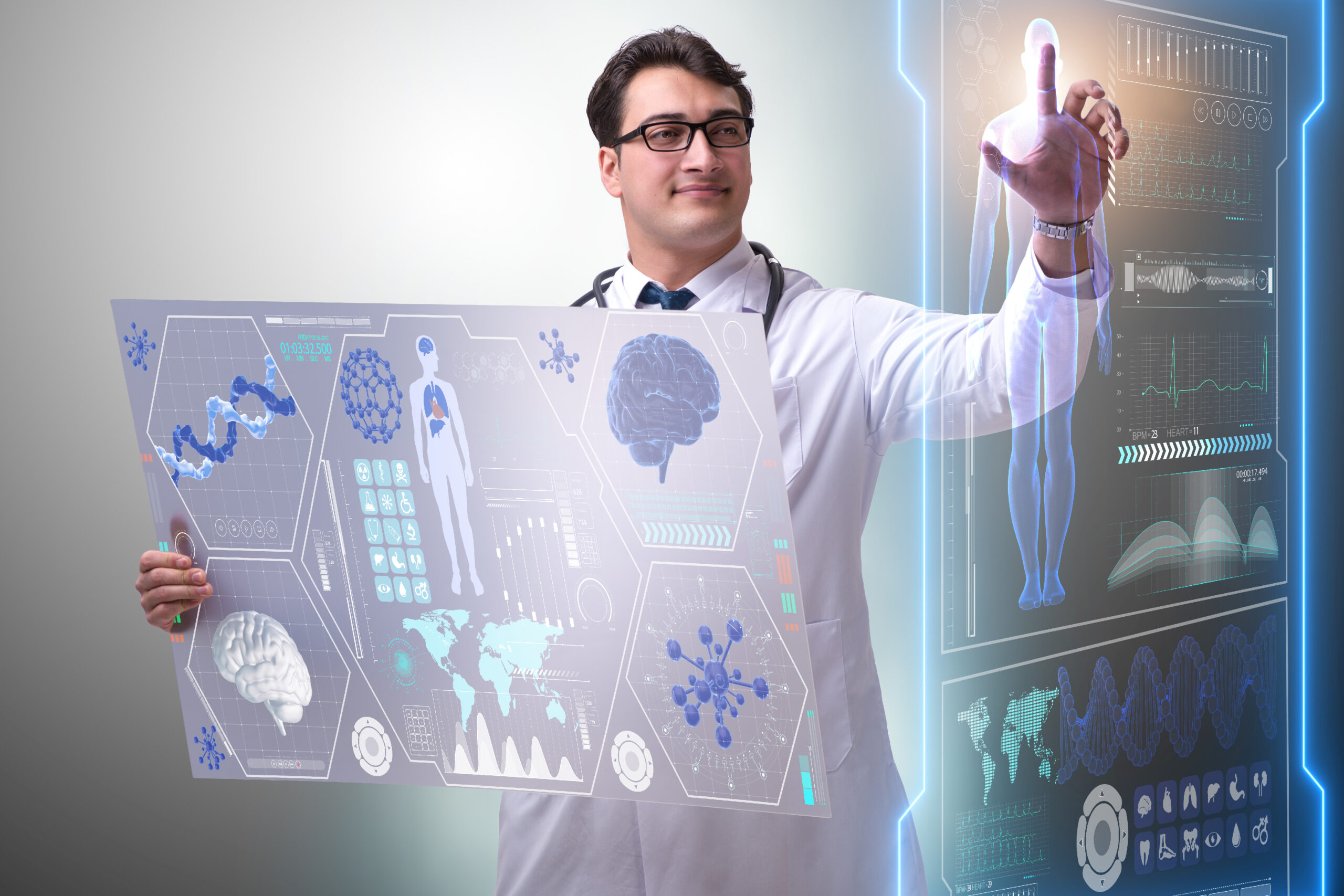Generative AI is swiftly becoming a part of the fabric of society. It has revolutionized the way how humans can harness technology. Ever since tech giants such as Microsoft and Google successfully dabbled their hands in GenAI with ChatGPT and Bard respectively, the technology has become the next big thing for businesses, irrespective of the industry they belong to.
Trained on massive amounts of data, GenAI creates content that is ‘almost’ similar to humans – for now. However, the advancement is not going to stop here, and it only keeps getting better with each passing day! Even the recent trends suggest that organizations of any kind should be ready to hop on the AI bandwagon to be ready for the future.

One of the most disruptive trends of the decade, GenAI is on the track to become a force to reckon with. By 2027, Generative AI will help reduce modernization costs in companies by 70% by creating suitable replacements for legacy applications. Furthermore, it is predicted that the technology is going to be a workforce partner, in some capacity, for almost 90% of companies worldwide!
The allure of Generative AI lies in its potential to expedite and optimize various aspects of clinical research. By harnessing this technology, researchers can simulate scenarios, predict outcomes, and generate hypotheses at an unprecedented pace. Moreover, its capacity to analyze and interpret complex datasets significantly enhances the precision and efficiency of data-driven research endeavors.
The implications of Generative AI in clinical research extend beyond mere data analysis. Its application in predictive modeling and drug discovery holds promise for accelerated breakthroughs in medical science. By creating simulated models and exploring vast arrays of molecular structures, Generative AI aids researchers in identifying potential drug candidates, significantly expediting the drug development process.
Furthermore, Generative AI’s ability to decipher and generate medical texts, such as clinical notes or research papers, streamlines literature reviews and augments researchers’ capabilities to access and assimilate information efficiently. This not only facilitates comprehensive data synthesis but also empowers researchers to glean insights and formulate informed hypotheses swiftly.
The transformative potential of Generative AI in clinical research is set to redefine medical innovation. Its integration into the domain isn’t just a technological leap; rather it represents a paradigm shift that enhances patient care, accelerates drug development, and fosters groundbreaking discoveries.
Challenges and Ethical Considerations
Despite its immense potential, the integration of Generative AI in clinical research isn’t without challenges. The ethical implications surrounding data privacy, bias in algorithmic outputs, and the interpretability of AI-generated results necessitate vigilant scrutiny and regulatory frameworks to ensure responsible and ethical utilization.
The ethical conundrums surrounding patient data privacy and the need for transparent and accountable AI algorithms demand stringent guidelines and regulatory oversight. Safeguarding patient confidentiality while harnessing the potential of Generative AI remains a critical concern that requires proactive measures.
Moreover, mitigating biases inherent in training datasets and ensuring the interpretability of AI-generated results are imperative to maintain the integrity and credibility of research outcomes. The responsible use of Generative AI demands a concerted effort to address these challenges and establish ethical guidelines that prioritize patient well-being and research integrity.
The Road Ahead
Generative AI ushers in an era of transformative possibilities in clinical research. Its integration promises to catalyze innovation, accelerate research timelines, and redefine the contours of medical discovery. The responsible integration of Generative AI holds the promise of unlocking novel insights, driving medical innovation, and ultimately, enhancing patient care.
The collaboration between human expertise and the computational prowess of Generative AI opens doors to avenues of medical breakthroughs. By leveraging this technology responsibly and ethically, researchers stand on the brink of a revolution that has the potential to shape the future of clinical trials.
Conclusion:
With majority of the tech experts hailing Generative AI as the future of workplaces, it is going to bring in a significant change across aspects of an enterprise. And it is going to be everywhere because of its potential to radically transform the work landscape by enabling business to grow and achieve success faster. So, founders, CEOs, CTOs, CIOs, and all other business leaders should prioritize their AI initiatives to derive maximum benefit from it.
This gives way to the fact that spending massive amounts on artificial intelligence adoption is no more restricted to just IT department, rather it is an enterprise-wide initiative. Even Gartner says that over 80% of enterprises across the world will leverage GenAI APIs & models, and GenAI-based applications by 2026. On that note, we are proud that at Inductive Quotient Analytics (IQA), we are one of the early adopters of Generative AI.
We have understood the impact of GenAI across industries early on and have come up with ‘Site Insights’, a GenAI solution that is going to radically transform the clinical trial site selection and help the life sciences industry efficiently navigate the challenges in bringing life-saving treatments to the market faster.
Built based on Generative AI, the platform will make site selection easier for sponsors and CROs with meaningful insights and information about trial site from all over the world. Please do follow the link to check out Site Insights https://siteinsights.inductiveclinical.ai/ and reach out to us at hello@inductivequotient.com if you want to learn more about it.
